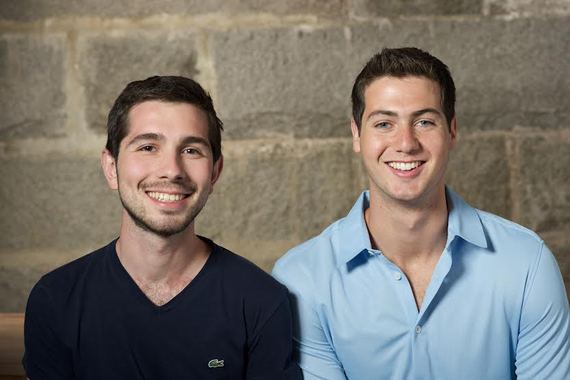When I was in college during the 1970s, our methods of communicating were pay phones (for calling home collect) and Centrex, a free inter-campus phone system located in the hallways of dormitories and public buildings. Making plans with others was a laborious task, which may perhaps explain why my friends and I so often stayed in the dorms and drank beer. It certainly wasn't easy to organize group expeditions or expand one's social network.
Today, we not only have cellphones and email, but apps to help us organize where to go and what to do. "Most people are social by nature," said Ben Kaplan. "We enjoy interacting with others." Based on this simple philosophy, Kaplan created Wigo (pronounced Weego), "a social app that functions as a simple platform for young people to make imminent social plans." Or as we eventually established, a passive guide that helps you decide what you're doing tonight, rather than two weeks from now.
As Kaplan -- who is based in Boston -- explained: "Let's say I decide I'm going to Faneuil Hall tonight. I can use Wigo to create an event called "I'm going to Faneuil Hall tonight." Then throughout the day, other people can join that event and through the app we can discuss what time to meet, who else is coming -- that kind of thing." Wigo can also suggest other fun places to go so all the pressure isn't on the user. The app employs teams of young socially connected people to help users find new, hip places, or as clarified by Kaplan, "the hottest spots in the city."
"Wigo is not exclusive to partying," said Kaplan. "If someone wants to create "Walking my dog in the park in the morning" they can do that too. It's a great way to connect with like-minded people. I've seen users plan trips to the gym or a yoga class," he added. "It's a great tool to help with social planning." Although Wigo is a collaborative social network, events can be public or private and someone has to be your "friend" in order to participate with you in an event.
Wigo has taken a grassroots approach to marketing, using word of mouth and campus ambassadors to promote the app and they are slowly making the move from college campuses to cities. Kaplan sees the app as ageless, so eventually middle-aged people like myself may use it as well. I was the host of Tech Hub, a WOR radio program that profiled technology startups, so I've interviewed hundreds of young entrepreneurs. Wigo, like any other app needs users to provide value and while they don't specify numbers, their ranks seem to be growing.
"Most people use inefficient platforms like email chains to make social plans," said Kaplan. We enjoy interaction with other humans and with all the technology that exists today there isn't something that is purely focused on getting friends together so that's what we're striving to do with Wigo"

